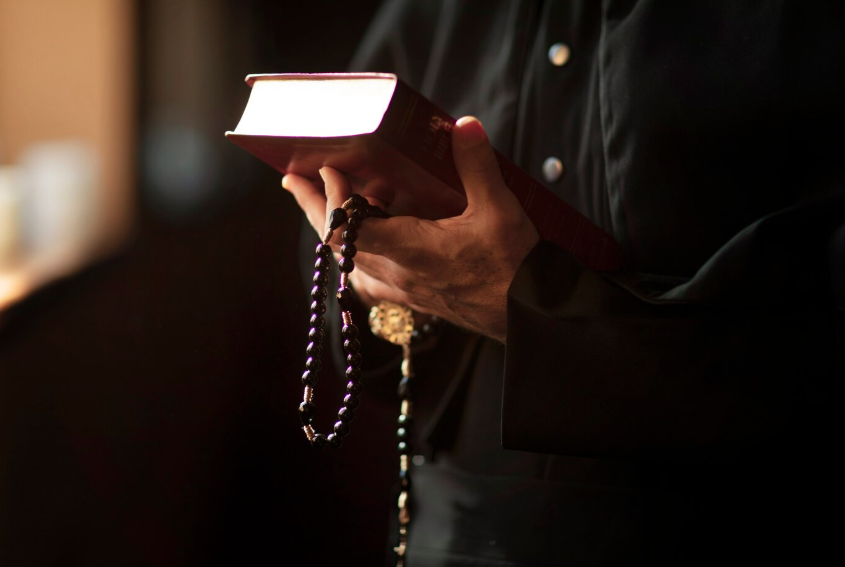Nigeria, a country of over 200 million people, is home to two dominant religions—Christianity and Islam—alongside various indigenous beliefs. While religious diversity has contributed to Nigeria’s rich cultural heritage, it has also been a source of conflict and tension. Over the years, Nigerians have experienced both peaceful interfaith coexistence and violent religious clashes, particularly in regions like Jos, Kaduna, and Kano.
In today’s content, we’ll explore how Nigerians navigate religious coexistence, examining the efforts to promote peace and the challenges that threaten unity in this multi-religious society.
1. Nigeria’s Religious Landscape: A Nation of Faith
Religion plays a significant role in the lives of Nigerians. The country is almost evenly split between Muslims (mostly in the North) and Christians (mostly in the South), with indigenous religions present across the nation.
✔ Islam dominates states in the North, where Sharia law is practiced in some regions.
✔ Christianity thrives in the South, with churches influencing political and social affairs.
✔ Indigenous religions persist, often blending with mainstream faiths.
While religious coexistence is possible and widely practiced, tensions arise when ethnicity, politics, and economic factors mix with faith-based differences.
2. Religious Conflicts: The Dark Side of Coexistence
Despite centuries of religious interactions, Nigeria has witnessed deadly religious conflicts, often fueled by politics, ethnic rivalry, and economic struggles.
Case Study: The Jos Crisis
Jos, the capital of Plateau State, has been a flashpoint for religious violence. The city, once known for peaceful coexistence, has suffered repeated clashes between Christian and Muslim communities since the early 2000s.
🚨 Key Causes:
-
Ethnic and Religious Identities – The division between indigenous Christian groups and Hausa-Fulani Muslim settlers creates underlying tension.
-
Land and Political Control – Access to land and governance positions have triggered deadly riots.
-
Misinformation and Retaliation – Rumors and revenge attacks escalate violence.
Other Notable Conflicts
-
The Maitatsine Uprisings (1980s) – Islamic sectarian violence led to thousands of deaths.
-
Boko Haram Insurgency (2009-Present) – The terrorist group continues to attack Christians, moderate Muslims, and government forces.
-
Kaduna Clashes – Regular religious confrontations have divided the city into Christian and Muslim zones.
While these conflicts are not purely religious, they demonstrate how faith can be weaponized to advance personal, ethnic, or political interests.
3. Promoting Peace: Interfaith Initiatives in Nigeria
Despite these challenges, Nigerians have consistently worked toward peaceful religious coexistence. Various interfaith initiatives bridge the gap between different religious groups, proving that unity is possible.
The Interfaith Dialogue Forum for Peace (IDFP)
-
A platform where Christian and Muslim leaders work together to promote tolerance and resolve disputes.
-
Engages in community dialogues to prevent religious violence.
The Kaduna Peace Commission
-
Established to ease tensions between religious communities in Kaduna.
-
Organizes peace-building programs and conflict resolution workshops.
Joint Christian-Muslim Schools and Businesses
-
In many cities, schools and businesses welcome both Christian and Muslim students or customers, fostering everyday interactions.
-
Example: The Kano Interfaith Business Alliance, where entrepreneurs from different faiths collaborate.
Religious Tolerance in Families and Friendships
-
Many Nigerian families are religiously mixed, with Christians and Muslims living together peacefully.
-
Interfaith marriages, though rare, promote understanding between both faiths.
These initiatives show that cooperation is possible and tolerance can be nurtured through education, dialogue, and mutual respect.
4. Challenges to Religious Harmony
Despite efforts to promote peace, certain issues still threaten religious coexistence in Nigeria:
❌ Religious Extremism: Groups like Boko Haram and violent sects reject peaceful coexistence.
❌ Political Manipulation: Politicians often exploit religious sentiments to gain votes or incite violence.
❌ Discrimination and Segregation: In some cities, people face employment bias or residential division based on faith.
❌ Social Media Hate Speech: False rumors and religious hate speech fuel division online and offline.
Addressing these issues requires strict government intervention, educational reforms, and stronger interfaith relations.
5. The Path Forward: A United Nigeria
For Nigeria to achieve true religious harmony, key steps must be taken:
✅ Stronger Interfaith Education: Schools should teach religious tolerance as part of the curriculum.
✅ Balanced Religious Representation: Governments should ensure fair treatment of all religious groups.
✅ Community-Led Peace Initiatives: More grassroots organizations should promote interfaith dialogue.
✅ Media Responsibility: The press and social media influencers should avoid spreading divisive narratives.
Ultimately, the future of religious coexistence in Nigeria depends on the willingness of leaders, communities, and individuals to embrace tolerance, dialogue, and peace.
Conclusion: A Nation of Faith and Unity
While religious tension remains a challenge in Nigeria, the nation has also demonstrated remarkable resilience and interfaith harmony. From community peace initiatives to friendships that transcend religion, Nigerians continue to prove that coexistence is possible.
The journey toward a peaceful, multi-religious Nigeria is ongoing, but with sustained efforts, education, and tolerance, the country can overcome division and thrive as a united nation.
Last Updated on March 27, 2025 by kingstar





